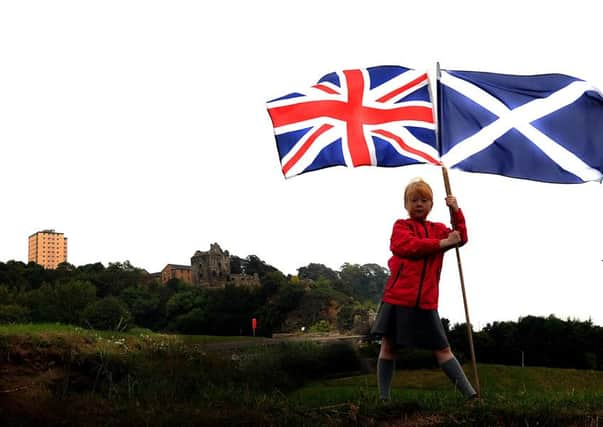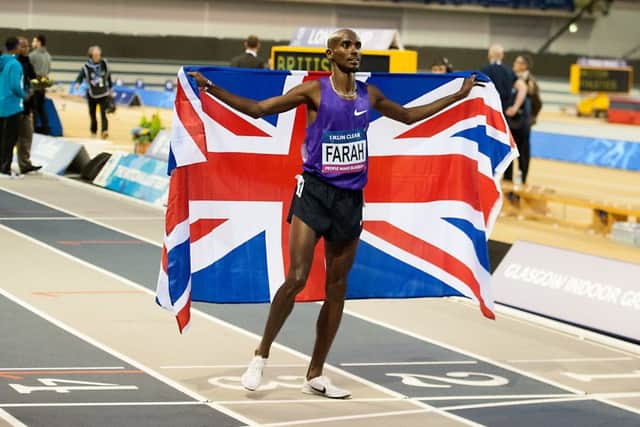10 reasons against Scottish independence


The No campaign was successful last time, winning 55% of the vote as Scotland voted to remain a part of the United Kingdom.
Here we look at some of the ways that the No campaign will convince people to vote to stay in the United Kingdom.
After Brexit, we don’t need more uncertainty


Advertisement
Hide AdAdvertisement
Hide AdAs Nigel Farage is keen to point out, the worst of the predictions by the “political establishment” after Brexit haven’t yet come to pass.
The simple reason for that is that Brexit hasn’t happened yet – once we leave the European Union the economy is expected to take a huge hit, in Scotland and in the UK.
An already delicate constitutional situation could be doing without the hand grenade of independence raising even more uncertainty.
Ruth Davidson described the “independence because of Brexit” option as the political equivalent of “amputating your foot because you’ve stubbed your toe.”


British identity
As uncomfortable as it might be for Scottish Nationalists, most people in the country still feel an emotional connection to Britain.
We speak the same language, we share so much history, and there is something about Britain as a concept that just appeals to people, even those who believe Scotland is a country.
In fact, the amount of Scottish people who feel British has actually increased since the 2014 vote, with the numbers of those describing themselves as “more British than Scottish” and “equally Scottish and British” have both risen.


As historians Dan Snow and Tom Holland recently wrote: “When nationalists both north and south of the border claim that they embody the future, they ignore the proven capacity of the union to evolve.”
Not making friends and family foreigners
Advertisement
Hide AdAdvertisement
Hide AdAs Americans are learning to their cost, building walls is not the right way to either rebuild an economy, or revitalize a nation.
A border between Scotland and England would only serve to isolate us from our nearest friends and closest allies, a physical embodiment of the divisions that a Yes vote represents.


Nearly half a million English people were resident in Scotland at the time of the last referendum – would we really want them to have to produce passports to visit their family back home?
Alistair Darling summed this up in 2013 when he said: “We’ve got friends and relations north and south of the border and we don’t want to make each other foreigners.”
The oil price crash
To say that the “Second Oil Boom” that Alex Salmond predicted ahead of the 2014 campaign hadn’t happened would be like saying that Salmond is neutral on the issue of independence.
In the year 2001/12, Scotland’s North Sea Oil was doing so well that the tax revenues were worth in excess of £9 Billion to the economy.
By the year 2015/16, the last time that the figures were assessed, that revenue had been virtually wiped out by the global fall in the price of oil.
The revenue had gone from £9bn to a mere £60m – with an independent Scotland seemingly so reliant on oil revenue, this was a brutal blow.
Advertisement
Hide AdAdvertisement
Hide AdThe Scottish Lib Dems summarised the reaction to these figures late last year when they said the revenue plunge showed independence was a “huge gamble”.
Not allowing Tories a free reign in UK
It was an argument that was used less in the 2014 referendum and more in Labour’s ill-fated Scottish campaign at the general election in 2015.
But the notion that leaving the UK at the mercy of a right-wing Tory Government influenced by UKIP is a real and stark prospect after independence.
Even now, with a Labour collapse, Scotland’s 59 MPs, with just one Tory, can still have an impact in parliament, forcing debates and amendments that wouldn’t come to the floor if we left the UK.
It was not a right-winger, but an avowed Socialist, who powerful raised this spectre, when George Galloway urged Scots in 2014 not to leave the rest of the UK facing “permanent Tory rule”.
The UK’s achievements (sporting and otherwise)
Ok, so we might not be in a hurry to sign up for a UK-wide football team, the sporting achievements of Team GB still give us cheer every four years.
Scotland contributes to great UK sporting achievements like those of Chris Hoy and Andy Murray, with the sporting stars of the future gaining access to relatively generous funding.
But we also share in the glory of British athletes when they do well for everyone in the UK – wouldwe deprive ourselves of being represented by legends like Mo Farah?
Advertisement
Hide AdAdvertisement
Hide AdThat’s before we even mention the many cultural achievements of Britain, which Scotland has had more than a hand in contributing to.
Hoy himself even said in 2013 that a separate Scotland Olympic team would make it “harder for the Scottish athletes”.
The UK’s clout on the global stage
Sport isn’t the only arena in which the UK (and thus Scotland) is definitely punching above its weight.
Britain in global terms, is a relatively small country with a relatively small population – but is still reaping the rewards of being a world power.
Britain is a member of the G8 and G20, representing one of the biggest economies in the World even after a recession.
Scotland’s interests are also represented at the UN, as one of only five permanent members of the UN Security council.
David Cameron, in his first indyref speech, said that we were “stronger together, and we have more clout as a result of our seat on the Security Council.”
We are safer in the UK
The Foreign Office made a detailed, if controversial, intervention at the height of the 2014 campaign on Britain after separation.
Advertisement
Hide AdAdvertisement
Hide AdThey noted that enemies of Britain would use “uncertainty and distraction” in the wake of a Yes vote to manipulate the situation for their own ends.
We are also protected from threats as broad as ISIS and domestic terror incidents by Britain’s world-renowned intelligence services.
Sir John Scarlett, former Mi6 chief, said of the SNP’s intelligence proposals in 2014 that “in my view the Scottish government proposals will not offer the level of protection and support currently
provided.”
We aren’t that different politically from the UK
It’s become a popular refrain that after Brexit, and successive Tory Governments, that Scotland is fundamentally divergent politically from the rest of Britain.
It is a myth of modern nationalism that Scotland is in some way more egalitarian than the rest of our neighbours on the British Isles.
Despite thinking that we were somehow immune to the allure of Nigel Farage’s nationalistic, anti-immigration world view, Scotland does have a UKIP MEP.
A study by Ailsa Henderson on political attitudes in the UK actually found that “in no case are there significant differences between Scotland and England.”
We get more than our fair share from the UK
One of the fundamental reasons, economically, for Scotland remain a part of the 300-year- old Union is one of the most simple.
Advertisement
Hide AdAdvertisement
Hide AdEven though our bloc grant has been cut by Westminster, it still remains a fact (and a bugbear of some English MPs) that we get more per head in public services spending than England.
£10,536 is spent each year on people here in Scotland, which is £1,460 more than the UK average of £9,076.
As Kezia Dugdale powerfully concluded on the publication of these figures, which is still a powerful argument for indyref2,: “People were misled by the SNP in the run-up to the referendum
and that is unforgivable.”